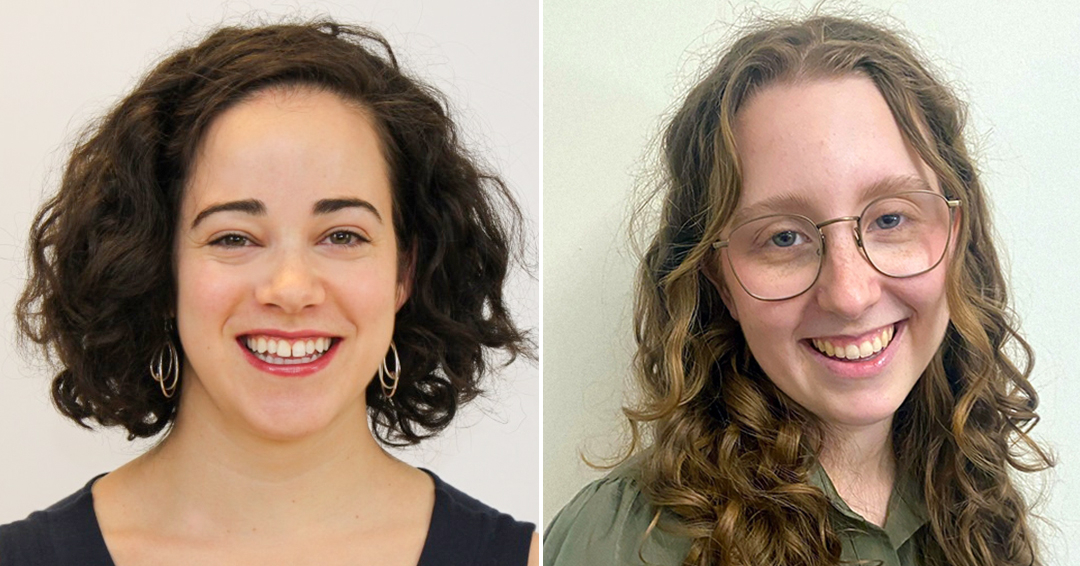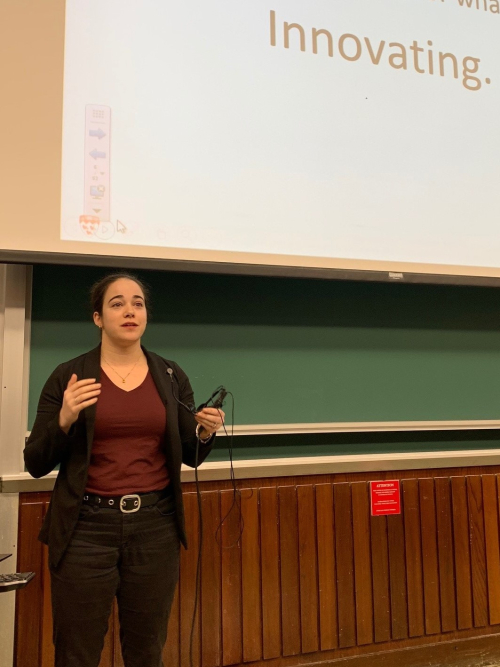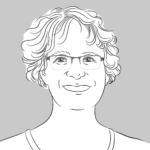
Project has trained 13 undergraduate and master’s students from nursing, oncology, computer science, and engineering in the skills of app design and development for cancer caregiving.
Aimee Castro is finishing up her 6th year in the ISoN PhD program, supervised by Prof. Argerie Tsimicalis and supported by the iRespite Services iRépit research advisory team, including John Kildea, Antonia Arnaert, Karyn Moffatt, and Bessy Bitzas. Gabrielle Lalonde-LeBlond, who will be graduating in May, is in her last semester of the MSc(A)-N program (direct entry to advanced practice nursing). The iRespite project has received generous support from the Rossy Cancer Network, the McGill Nursing Collaborative, the FRQS, the Canadian Nurses Foundation, the College of Registered Nurses of Newfoundland and Labrador, the OIIQ/MES, CIHR (Master’s Award), and RRISIQ.
How did you become involved in iRespite and when do you expect the project to be completed?
Aimee: I was looking for a way to use my interest in mobile technologies to address common home respite care challenges. These were challenges that my mother and I had experienced firsthand as family caregivers, and ones that I also witnessed later on as a homecare worker and a nursing student. I kept wondering, when you have a loved one who is extremely ill and you haven’t had time to put support networks in place, who do you call when you suddenly need help? In the summer of 2016, while on the train to Ontario, I had an idea: What if there was an app that could quickly provide trusted respite care services by matching families’ needs for a break in their family care roles with the availabilities and skills of trained respite care providers?
My nursing PhD work involves building that app with our team. Specifically, I’ve been leading the design of the iRespite app through a three-phase series of interviews and app design sessions with nurses, family caregivers, and adult patients living with advanced cancers. We’ve trained 13 undergraduate and master’s students from nursing, oncology, computer science, and engineering in the skills of app design and development for cancer caregiving. I’m aiming to finish the user-centred design of iRespite by next year so that we can move towards development and pilot testing of the app for my future research.
Gabrielle: My work within the iRespite team has revolved around compiling data about agencies offering respite care services to families with palliative care needs and translating this data into a user-informed digital tool. This work has recently been accepted for publication by JMIR Nursing, and a user-friendly document is now available for sharing respite care resources with families here.
What attracted you to this project and what outcome do you hope to see?
Aimee: It’s been exciting to take my initial entrepreneurial idea and grow it into a full-blown research project, nurtured by my supervisor, Prof. Argerie Tsimicalis, and our team. I hope that our app — or at least, the ideas we’ve learned through designing it — can be implemented with the support of home palliative care organizations in Quebec over the next few years, to make the coordination of respite care services easier for families.
Gabrielle: As I started the nursing master’s program, I was interested in gaining more experience in research. When I stumbled upon the iRespite project, I was intrigued by the intersection between nursing research, digital health, palliative care, oncology and caregiving. The project was innovative and differed from traditional research techniques I had previously encountered in my undergraduate studies. I look forward to the implementation of the iRespite app and navigator in clinical/community settings. It will be very rewarding to see the impact of this tool in alleviating difficulties associated with accessing respite care.
What do you like most about being involved in this project?
Aimee: My favourite aspect has been the deep conversations with patients and family caregivers about their needs, experiences, dreams, and ideas for improving healthcare and caregiving services. It’s these conversations and the opportunity to build those ideas into products that researchers, clinicians, and families can use and adapt that I enjoy the most. It’s also been a privilege to collaborate and learn from so many fantastic caregiving and palliative care organizations in the Greater Montreal Area, such as the Palliative Home-Care Society of Greater Montreal (SSPAD). Realizing how many brilliant and caring people are working to make a difference gives me a lot of hope.
Gabrielle: I love the interdisciplinary and highly dynamic nature of the project. It’s been fascinating to collaborate with experts in caregiving, social work, palliative care, engineering, and informational technologies. I also really enjoy contributing to the creation of a concrete tool to help families and clinicians.
What has surprised you about caregivers?
Aimee: I was surprised by just how much we as a society expect families to do on their own – keeping track of complex medical histories and appointments, learning to perform medical and physical care tasks, finding financial resources when a loved one becomes unemployed due to a terminal diagnosis… Nurses, social workers, and other clinicians help, but up to 90% of the coordination and implementation of care is left to caregivers. We will all need care and/or become caregivers in our lifetimes; we need to do a better job of supporting and valuing the people who provide this care.
Gabrielle: Since joining the iRespite team, I’ve learned so much about respite care. It’s a need that still feels under-recognized. Searching existing respite care services and speaking to friends and colleagues about respite care has illuminated huge awareness gaps, despite caregiving being such a common experience.
Is there anything else you would like people to know about caregivers?
Aimee: Caregiving relationships are incredibly complex, intense and transformative, involving some of the most intimate connections we’ll have during some of the toughest times in people’s lives. Caregiving is a dyadic relationship – there is a caregiver role, and a care receiver role, and the individuals involved may take on different roles at different times. With the right supports, such as respite care, both caregivers and care receivers can experience real joy and growth in these roles.
Gabrielle: A good reminder for me from the interviews is that while there are common experiences across families, each family’s experiences will still be unique. I think that’s where the nursing perspective comes into play – we’re trained to bring generalized theoretical knowledge to support and adapt to each family’s unique situation.
What are your future plans in nursing and healthcare?
Aimee: I’m hoping to become an independent scholar collaboratively designing and implementing caregiving support systems.
Gabrielle: As I embark on my nursing career, I look forward to discovering a wide range of roles within the profession. I think the endless career possibilities is what makes nursing such an exciting profession! I’m particularly excited to gain hands-on experience in the clinical setting, to better understand current gaps in healthcare, and to inform future research policy initiatives.
To follow the team’s progress, visit https://aimeecastro.com/irespite-services-irepit/ and follow them on Facebook: https://www.facebook.com/profile.php?id=61552479287270


